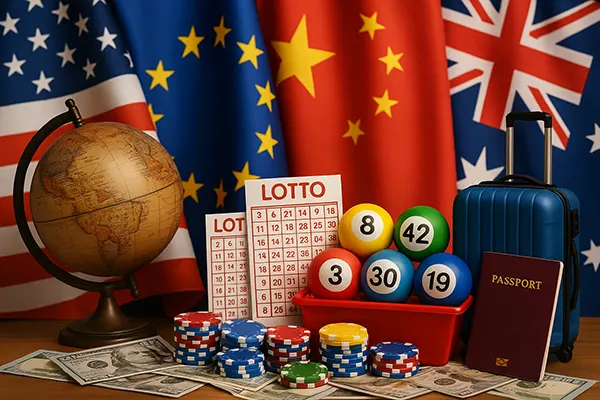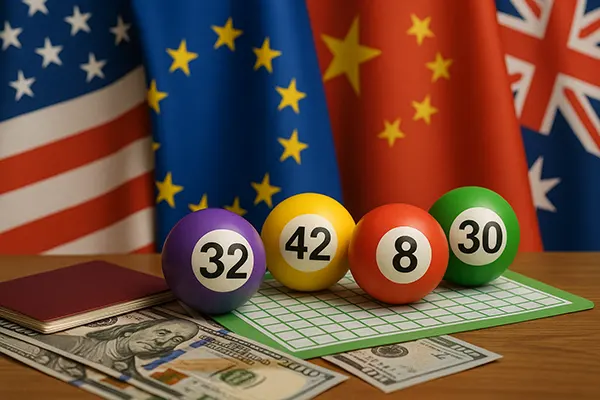
Lottery Regulation: Comparing Legislation Across Countries in 2025–2026
Lottery regulation remains one of the most debated areas in gambling legislation worldwide. While lotteries continue to serve as a significant source of public revenue, each jurisdiction sets its own rules concerning licensing, taxation, consumer protection, and responsible gaming. In 2025–2026, several countries have updated their legal frameworks to address modern challenges, including digital lotteries, cross-border participation, and enhanced safeguards against fraud. This article provides a comprehensive overview of lottery regulation in different regions, highlighting key similarities and differences.
European Union and the United Kingdom
Within the European Union, lottery regulation is primarily left to individual member states. Countries such as France, Spain, and Germany continue to operate state-run lotteries, with revenue channelled into cultural, educational, or social initiatives. However, the European Court of Justice has repeatedly ruled that restrictions on cross-border lottery services must be justified by public interest objectives such as consumer protection or preventing crime. This has shaped policies, leading to stricter licensing and compliance frameworks.
The United Kingdom, post-Brexit, maintains its own system under the Gambling Commission. The National Lottery remains the largest operator, awarded under a strict tendering process to ensure transparency and fair competition. In 2024, Allwyn Entertainment secured the licence, introducing digital innovations and broader player protection schemes. Taxation is structured to benefit charitable causes while maintaining strong oversight on advertising practices.
Overall, the European region demonstrates a strong commitment to balancing state revenue interests with player protection. However, regulatory fragmentation across countries makes harmonisation difficult, which impacts cross-border operators and international lottery providers.
Consumer Protection in Europe
Consumer safeguards remain central to European lottery regulation. Age verification, spending limits, and mandatory responsible gaming tools are widely implemented. In Germany, players must register in a centralised system that prevents multiple ticket purchases across states. France and Spain emphasise advertising restrictions to avoid targeting vulnerable groups, while the UK has increased fines for operators that breach anti-money laundering or social responsibility requirements.
Additionally, digitalisation has prompted new frameworks to prevent fraud and match-fixing. Lotteries that extend into online channels must implement advanced KYC (Know Your Customer) procedures and ensure that prize claims are transparent. This ensures that lottery participation remains safe and trustworthy.
Looking ahead, the EU is considering discussions on more unified standards, but the political complexities of national monopolies and revenue distribution continue to pose challenges. Thus, while player protection is consistent, market access rules remain diverse across the region.
North America: United States and Canada
In the United States, lotteries are governed at the state level, with no federal oversight beyond interstate commerce rules. Almost every state operates its own lottery, with multi-state games such as Powerball and Mega Millions being the most popular. Revenue allocation typically supports education, infrastructure, or healthcare, though the proportion varies significantly between states. The legal framework places heavy emphasis on transparency in fund distribution, but critics argue that efficiency and fairness vary greatly.
Canada operates a hybrid model, where provincial governments oversee lotteries through regional corporations such as Ontario Lottery and Gaming (OLG) and Loto-Québec. Online ticket sales have been expanding rapidly, supported by regulatory amendments aimed at addressing cross-border digital participation. Each province sets its own rules for responsible gaming, taxation, and distribution of funds, making the system similar to the US in terms of decentralisation.
Both the US and Canada face growing debates about the rise of online lottery courier services, which allow players to purchase tickets remotely. Regulators are carefully reviewing these services to ensure compliance with consumer protection standards and prevent illegal cross-border operations.
Responsible Gaming in North America
Responsible gambling initiatives in the US and Canada differ from those in Europe. While American state lotteries provide disclaimers and helplines, structured self-exclusion programmes are less consistent across jurisdictions. However, states like New Jersey and Massachusetts have begun integrating responsible play tools in online platforms, including spending limits and player activity monitoring.
Canada is more proactive in embedding responsible gaming within its provincial frameworks. For instance, British Columbia Lottery Corporation (BCLC) operates GameSense, a programme that educates players about odds, risks, and healthy play habits. These initiatives are closely aligned with public health perspectives, reflecting Canada’s more unified approach to consumer welfare.
As digital lotteries expand, regulators in North America are expected to introduce stricter oversight in 2025–2026, especially concerning identity verification and fraud prevention. These measures aim to strengthen consumer trust while accommodating innovation in ticket distribution.

Asia-Pacific: Emerging and Established Markets
The Asia-Pacific region presents a highly diverse picture of lottery regulation. In China, lotteries remain state-controlled, with the Welfare Lottery and Sports Lottery being the two authorised operators. Online sales were restricted in 2015 due to fraud concerns, but gradual reintroductions under strict regulation have been underway since 2023, with a focus on transparency and accountability. Revenues continue to support social welfare and sports development.
In Australia, lotteries are run by licensed private operators such as The Lottery Corporation, under the supervision of state regulators. The system allows for both traditional and online ticket sales, with strong compliance requirements regarding advertising and responsible play. Australia has also implemented comprehensive anti-money laundering frameworks to mitigate risks linked to international ticket reselling.
Emerging markets such as India and the Philippines are also updating legislation. India allows lotteries in certain states, with others banning them entirely. The challenge lies in preventing illegal operators, especially online, where enforcement remains difficult. The Philippines operates lotteries under the Philippine Charity Sweepstakes Office (PCSO), with ongoing reforms to modernise operations and increase accountability.
Future Prospects in Asia-Pacific
The future of lottery regulation in Asia-Pacific lies in balancing rapid digital adoption with effective enforcement. Governments are investing in blockchain-based systems for transparency in ticket sales and prize distribution. This approach is particularly attractive in emerging economies where trust in regulatory institutions may be weaker.
Another focus is cross-border cooperation. As lottery scams often operate across jurisdictions, regulators in countries such as Singapore, Malaysia, and the Philippines are discussing shared databases and intelligence networks to improve enforcement. These initiatives highlight the importance of regional collaboration in maintaining consumer trust.
Overall, the Asia-Pacific region is characterised by innovation and adaptation, but also by regulatory disparity. While countries like Australia and China enforce strong oversight, emerging markets face the dual challenge of promoting legal lotteries while combating unregulated alternatives.
